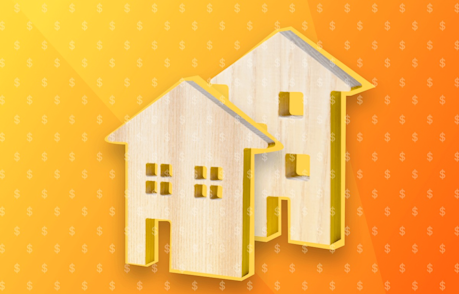Back

Using equity in your home to buy an investment property
5 min read | 20 May 2021


How to cash in and buy again (and potentially again & again)
Buying an investment property is a fantastic way to grow wealth and build a comfortable life. And if you’re already a property owner, there’s all that potential ‘usable’ equity you could tap into for a deposit.
So much easier in round 2, right? Potentially, yes.
Let’s take a look at what equity could do for you and how to get started.
The definition of equity
Equity in home loan terms is the difference between the outstanding amount on your home loan and the value of the property securing your loan.
Equity can increase:
by property values going up
because you’ve paid money off the principal amount of your home loan.
For example: If your house is valued at $500,000 and you have $250,000 left to pay on it, you have $250,000 of equity.
Equity and ‘usable’ equity
Now to clear up a common assumption. While you may have loads of equity like the example above, lenders need to look at other criteria before agreeing to lend you ‘usable’ equity. (Good lenders are super cautious when assessing any applications for credit.)
So just like your first time around, the factors that also come into play include your work situation, earnings and age.
How much equity do you need to buy property?
Lenders will typically only offer around 80% of the property price. Meaning your deposit – in this case, your ‘usable’ equity – will need to cover at least 20% of the property’s value and its purchase fees, including stamp duty.
Some lenders may be OK with less than 20% of the property purchase price but will charge you Lenders Mortgage Insurance or LMI to borrow with them (an insurance to cover lenders in case you default on the loan).
How to access your equity
Like we’ve touched on, accessing equity isn’t as simple as withdrawing money from your loan – you need to apply for it. Here are the main options:
Refinance with current lender: Apply to top up your current loan up to your property’s latest value with your current lender
Refinance with new lender: Apply elsewhere – perhaps with a lender who’s on your side!
Take out a line of credit: Apply to take out a loan and use only some of it to buy an investment (and keep the rest for maintenance and emergencies)
Redraw facility: Most lenders allow you to access the additional repayments you’ve made on your home loan.
4 steps to getting started with using equity to buy an investment property
1. Work out how much equity you have
To work out your equity, you need to find out how much your security property is worth (best not to rely on your own guestimate).
Hire an independent property valuer – which may cost you around the $250 mark.
A real estate agent could do it for you for free, but you may end up with an inflated figure.
You can also get a free property report from us for an indicative view of how much your property is worth.
To work out your usable equity, calculate it as 80% of the value of your home minus the amount you owe to the bank. (This is an indication only and will vary between lenders and borrowers.)
2. Search for a place
Armed with your estimated equity, take a look around at potential investments. Explore up-and-coming neighbourhoods in your hometown and suburbs outside your city, state or territory. Keep the emotion at bay, too – it’s an investment, something someone else will pay you money to live in.
3. Find the perfect loan
What’s ‘perfect’ for you may be ‘no thanks’ for someone else. Either way, now is the time to look at where you’re at and whether you might be better off elsewhere.
4. Apply for your loan
Your lender will look at your spending habits, income, family circumstances and any other debts you may have. They will most likely engage a valuer to put a dollar figure on your current property’s worth.
Over to you
Once you have all those ducks in a row, it’s over to you to hit the auctions or make an offer. Equity can be a truly wonderful thing. It’s just about knowing what you have and how to make the most of it.
Find a lender that look after Investors. At Athena, we have Investor rates that invest in you.
We have split loans to help you keep track of your investment loans. We can help you estimate your usable equity and borrowing power.
Get the most out of your home and equity today. Talk to us about an equity and borrowing power estimate.
You’ve got nothing to lose except your home loan!
Start saving a whole lotta time and money